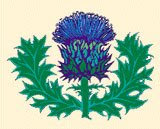Originally published in Harper's New Monthly Magazine, March 1885, pages 601-612.Author: Frederick Daniel
(continued from Part 1)
Yet at the date of this declaration the town's council had not been organized. The first court was incorporated only one year before the close of the Revolutionary war, and some of the first acts of this court furnish a commentary on the epoch. Five persons were authorized to keep taverns - the name "hotel" being then unknown in Virginia - and a regular tariff of prices was fixed, "the same not to be exceeded by the tavern-keepers" under severe penalties. It is noteworthy that the limits were not given for a wine-glassful or even for a tumblerful of fermented beverages, but for a gallon. The prices established were: "West India rum, $3.34; apple brandy, $1.67; whiskey, $1; strong beer, 67 cents; rum toddy, $1.67; brandy toddy, $1.25; rum punch, $2.50; brandy punch, $2; rum grog, $1; brandy grog, 84 cents; Madeira wine, per bottle, $1.25; port wine, per bottle, 67 cents. This port could hardly have been the genuine article of Oporto, but must have been some domestic precursor of the present port-wine of California. Having thus limited the prices on drinking, the authorities next proceeded to take upon their shoulders to limit the prices for eating, and they fixed the cost of a single "diet" at 25 cents - certainly quite a moderate figure, according to our modern standards. These dietary laws remained in force till the end of the century, and some of the taverns for which they were drawn up lapped over far into the present century, and the keepers told many an anecdote in regard to the distinguished personages who had lodged in them during the Revolution. In addition to regulating the diet of their guests, the court undertook to appraise property held in legal subjection for debt. The inventory and appraisement of the personalty of a citizen who died during the Revolution stand as follows on the court record: one silver watch, $26.67; one cow and yearling, $16.67; one suit broadcloth clothes, $13.34; one other suit broadcloth, $6.67; three blue coats, $10; seven pair of white breeches, $11.67; five white vests, $11.67; one shirt, 67 cents; six pair of stockings, $1.67; two pair of shoes, $3; three hats, $3; one stock buckle, 50 cents; three brushes, 50 cents.
By the modern visitor the principal attraction of the place is found in the cherished relics relating to the residence of the youthful Washington and of his mother. They consist of the house within the corporate limits in which both dwelt and in which she died; the tomb over her grave; the site opposite the town, across the river, upon which stood the house in which he first lived after his removal from Westmoreland, and the grounds adjoining, which were the theatre of his renowned boyish exploits. Thirty years ago the town contained dozens of "old citizens" who personally had known Washington and his mother, many of them as kin; they have all passed away, but their recollections and impressions, received at first hand, were of course stamped on the minds of their children who are still living. The information so handed down by persons of noted veracity and accuracy is none the less authentic because it has never sought the publicity given by type.
(to be continued)
Subscribe to:
Post Comments (Atom)

No comments:
Post a Comment